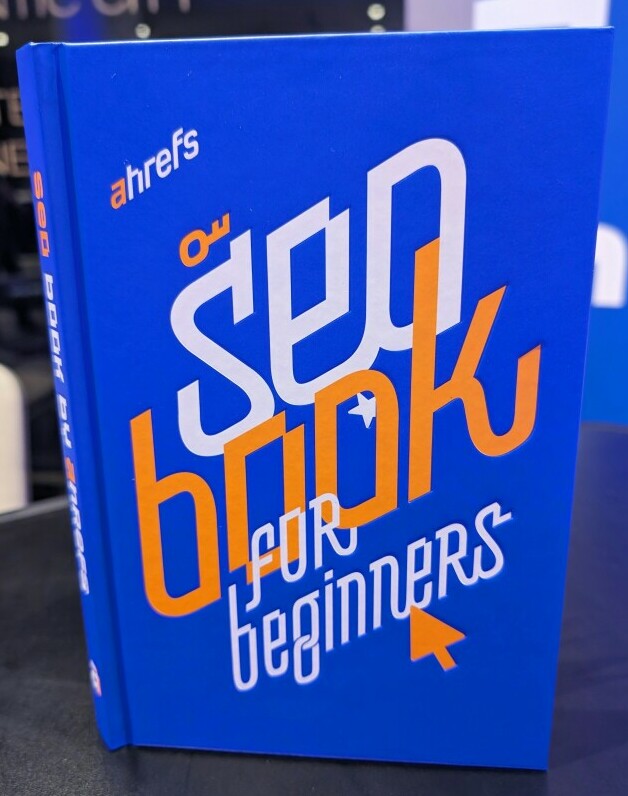
Ahrefs vs Semrush vs Surfer SEO reviews the big names in search engine optimization tools. Each has features designed to help businesses improve their online visibility and outperform competitors. Understanding what these tools offer is crucial for making the right choice.
At first glance, Ahrefs, Semrush, and Surfer SEO may seem similar. After all, they’re about boosting your website’s performance and climbing that Google ladder. But dig a little deeper, and you’ll find each tool has unique strengths and areas they specialize in.
Ahrefs is often hailed for its top-notch backlink analysis. It’s a powerful tool for those who want to monitor their link-building strategies closely. Meanwhile, Semrush offers a more holistic approach, covering not just SEO but also PPC, social media, and content marketing. On the other hand, Surfer SEO focuses on hyper-specific on-page optimization, helping you fine-tune each piece of content for better ranking.
Choosing the right SEO tool depends on your specific needs. Maybe you’re launching a new site and need comprehensive keyword research, or perhaps your focus is on outpacing competitors in content marketing. Whatever your goal, understanding the core offerings of Ahrefs, Semrush, and Surfer SEO will set you on the right path.
Key Features of Ahrefs

Ahrefs is widely recognized in the SEO community for its robust backlink analysis capabilities. This tool excels at identifying your website’s backlinks, which are crucial for your site’s authority and ranking potential. It also allows you to monitor your competitors’ backlinks, helping you uncover link-building opportunities you might have missed.
Another standout feature is Ahrefs’s site audit functionality. It conducts comprehensive scans of your website, highlighting any SEO issues that need attention. This helps you maintain a healthy site and ensures you’re not missing critical optimization opportunities.
Ahrefs shines in keyword research, too. The tool offers detailed insights into keyword difficulty, search volume, and potential traffic, making it easier to identify valuable keywords for your content strategy. Plus, the rank tracking feature allows you to monitor your search performance over time.
When it comes to content exploration, Ahrefs provides a goldmine of data. You can analyze top-performing content in your niche, understand what resonates with your audience, and find content gaps you can capitalize on. This is incredibly useful for crafting content that drives traffic and engagement.
Pros include its user-friendly interface, extensive database, and reliable data. However, a potential downside is its pricing, which may be steep for smaller businesses or solo entrepreneurs. Moreover, while it covers a broad range of SEO aspects, it might lack depth in areas like social media tracking or PPC analysis, which some all-in-one tools offer.
Core Features of Semrush
Semrush stands out due to its comprehensive suite of tools tailored for SEO, PPC, and content marketing. This might be your tool if you’re looking for an all-in-one solution. One of its primary strengths is competitor analysis. It provides deep insights into your competitors’ strategies, including their top-performing keywords, backlinks, and ad campaigns. This helps you uncover gaps in your strategy and capitalize on opportunities.
The SEO content template and writing assistant are game-changers for content creators. Semrush offers recommendations tailored to your target keywords, making it easier to optimise your content to rank higher on search engines. Coupled with the writing assistant, which provides real-time readability and SEO optimization feedback, you can ensure your content keeps readers and search engines happy.
Advertising research is another area where Semrush shines. It allows you to explore competitor ad strategies, revealing their PPC keywords, ad spend, and performance metrics. This insight is invaluable for fine-tuning your campaigns and maximizing ROI.
The platform also excels in social media tracking and management. You can schedule posts, track engagement, and analyze your social performance all from one dashboard. This makes it easier to maintain a consistent presence and engage with your audience across different platforms.
The main benefits of using Semrush include its all-in-one approach, detailed analytics, and user-friendly interface. However, some users may find it overwhelming due to the sheer volume of features. Its pricing can also be a barrier for small businesses, especially considering some advanced features are locked behind higher pricing tiers.
Highlight Features of Surfer SEO

Surfer SEO uniquely focuses on on-page optimization, setting it apart from tools like Ahrefs and Semrush. Its strength lies in its ability to fine-tune your content for better rankings, making it an excellent choice for those who want to get granular with their SEO efforts.
One standout feature is the content optimization tool. By analyzing top-performing pages for your target keywords, Surfer SEO offers actionable recommendations to tweak your content. This includes suggestions on keyword usage, content structure, and even the ideal word count. Such insights can significantly boost your content’s ranking potential.
Another highlight is the keyword research and clustering feature. It goes beyond listing keywords; it groups them based on relevance and search intent, helping to create more focused and effective content strategies.
Surfer SEO also excels in providing detailed audits of on-page SEO elements. It checks for issues like missing meta tags, poorly structured URLs, and lack of internal links. Addressing these factors can enhance your site’s overall SEO health.
A particularly innovative feature is the AI-driven content editor and planner. This tool assists in drafting new content by offering data-backed suggestions in real time. It’s like having an SEO consultant guide you through every step of the content creation process.
The pros of Surfer SEO include its precise optimization tools and user-friendly interface. However, it may not be as comprehensive in handling off-page SEO and broader marketing needs. Additionally, while it offers valuable insights, it might require a bit of a learning curve for those new to SEO.
Comparing Ahrefs, Semrush, and Surfer SEO: What Sets Them Apart
Understanding what sets Ahrefs, Semrush, and Surfer SEO apart is key to making a decision.
Ahrefs is renowned for its backlink analysis and site audit capabilities. It’s the go-to tool for those who need detailed insights into their link-building efforts and site health.
Semrush, on the other hand, offers a broader suite of tools. Its strength lies in its all-in-one approach, covering everything from SEO and PPC to content marketing and social media management. This makes it suitable for comprehensive digital marketing strategies.
Surfer SEO focuses on content optimization and on-page SEO. Its precision in fine-tuning individual pieces of content is unmatched, making it perfect for those looking to maximize the impact of their content.
User interface and experience also vary. Ahrefs and Semrush offer more comprehensive dashboards, which might seem overwhelming initially but provide extensive data once you get the hang of them. Surfer SEO’s interface is more streamlined, catering to users focused on content specifics.
Pricing and subscription plans are another area where these tools differ. Ahrefs and Semrush can be pricey, with various tiers that unlock advanced features. Surfer SEO generally comes in at a lower price point, which can be appealing for smaller businesses or those specializing in content.
Customer support and community engagement are also crucial. Semrush and Ahrefs offer robust customer service and have active online communities where users can exchange tips and best practices. Surfer SEO, while smaller, still provides solid support and has a growing community of dedicated users.
Use Cases: Which Tool is Best for You?

Determining the best SEO tool often refers to specific use cases and business needs.
If backlinks are the cornerstone of your strategy, Ahrefs is your best bet. Its detailed backlink analysis and link-building tools provide all the insights you need to craft a robust link-building strategy. It excels in monitoring both your site’s backlinks and those of your competitors, offering actionable data to improve your SEO efforts.
For businesses that need a comprehensive digital marketing toolbox, Semrush is the perfect fit. It covers everything from SEO and PPC to social media management and content marketing, making it ideal for large-scale campaigns and multifaceted marketing efforts. The breadth of features means you can conduct competitor analysis, optimize content, and track your social media performance all in one place.
Surfer SEO is well-suited for those prioritising on-page optimization and content performance. If you’re focusing on refining individual pieces of content to rank higher, Surfer SEO’s specialized tools can guide you through the process with precision. Its real-time optimization suggestions make creating content that resonates with both search engines and readers easier.
Consider scenarios based on your business needs. For instance, a digital agency handling multiple aspects of online marketing might find Semrush’s all-in-one capabilities indispensable. A solo content creator or a smaller business focusing on content optimization might benefit more from Surfer SEO’s specialized features. Meanwhile, a team prioritizing link-building initiatives would likely get the most out of Ahrefs.
Selecting the right tool often involves trial and error. Most SEO tools offer free trials or limited versions. Take advantage of these opportunities to see which tool best suits your specific needs and workflow.
Conclusion: Making the Right Choice for Your SEO Needs
Choosing between Ahrefs, Semrush, and Surfer SEO depends largely on your specific goals and requirements. Each tool has its own strengths, making them suitable for different aspects of SEO and digital marketing.
Ahrefs excels in comprehensive backlink analysis and site audits, making it indispensable for teams focused on link-building strategies and maintaining site health. Its extensive data and user-friendly interface make navigating your SEO journey smoother.
Semrush stands out with its all-in-one package, covering SEO, PPC, social media, and content marketing. Having all these tools under one roof can be incredibly advantageous for businesses that handle multiple facets of online marketing. Its detailed analytics and robust support structure add to its appeal.
With its precise focus on content optimization and on-page SEO, Surfer SEO is perfect for those who want to enhance individual pieces of content for better rankings. Its AI-driven content editor and planner offer real-time recommendations that can significantly boost your content’s effectiveness.
Ultimately, the best way to determine the right tool is by taking advantage of free trials or demo versions. Hands-on experience can provide valuable insights into which platform best fits your workflow and meets your business needs.
Remember that the optimal choice might involve using a combination of these tools. For instance, leveraging Ahrefs for backlink analysis while using Surfer SEO for content optimization could give you the best of both worlds.
Choosing the right SEO tool is an investment in your online presence. Evaluate your unique requirements, experiment with different options, and select the best aligns with your strategic goals.







